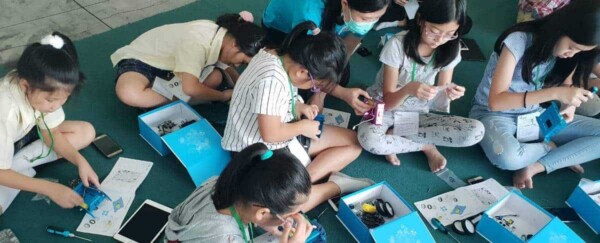With over half of undergraduate degrees in science, engineering, and technology (SET) awarded to women (see Figure 1), we would expect similar rates of representation among engineering professionals. However, according to the latest report from the Engineering Council of South Africa (ECSA), less than a quarter of candidate engineers (whose roles are equivalent to Engineers in Training, EITs) are women. As Figure 1 shows, this representation only becomes more abysmal among professional engineers, where only 6% of professional engineers are women. Indeed, this shows that although there seems to be gender parity in engineering college degree attainment, this does not necessarily translate to gender parity in the engineering workforce.

As reported by Marna Thompson from the World Economic Forum (2015), ECSA had revealed previously that nearly 70% of these women engineering degree holders left the engineering profession because of the workplace climate. Specifically, the recent women engineering graduates “felt isolated in their jobs,” (World Economic Forum, 2015). This phenomenon is not new as the longstanding “chilly climate” women experience is well-documented in the U.S. among engineering undergraduates (Seymour & Hewitt, 1997) and professional engineers (Harvard Business Review, 2018). Therefore, the critical issue of gender inequity in engineering is one that is widespread globally. Still, researchers have suggested certain supportive actions from managers to mitigate women’s attrition in engineering, including:
- Provide detailed, personalized feedback, explaining performance strengths and weakness and offering guidance for improvement;
- Influence your workplace environment by ensuring that your immediate work group supports inclusivity; and
- Serve as role models by demonstrating the importance of work-family balance.
Ultimately, the goal should be to create more inclusive, encouraging, and supportive workplace for everyone.
To learn more about women’s representation in South Africa, visit SWE Research’s Higher Education and Engineering Professionals sites.
References:
Carador, M. T. & Barker Caza, B. (2018, November 23). The Subtle Stressors Making Women Want to Leave Engineering. Harvard Business Review. https://hbr.org/2018/11/the-subtle-stressors-making-women-want-to-leave-engineering
Engineering Council of South Africa. (2021). Annual Report 2019-20. https://www.ecsa.co.za/about/pdfs/ECSA%20Annual%20Report%202019%202020.pdf
Fernando, D., Cohen, L., & Duberley, J. (2018, June 12). What Managers Can Do to Keep Women in Engineering. Harvard Business Review. https://hbr.org/2018/06/what-managers-can-do-to-keep-women-in-engineering
Seymour, E., & Hewitt, N. M. (1997). Talking about leaving. Westview Press: Boulder, CO.
Thompson, M. (2015, August 27). What’s holding back gender equality in South Africa’s engineering sector? World Economic Forum. https://www.weforum.org/agenda/2015/08/whats-holding-back-gender-equality-in-south-africas-engineering-sector/
Author
-

Ursula Nguyen is a doctoral candidate in STEM Education at The University of Texas at Austin. She has a BS in Biomedical Engineering from UT-Austin. Prior to returning to UT, she was a first-grade Bilingual math and science teacher in Houston, TX. There, she was also the first-grade Math lead at her school. Her research interest on issues of equity in STEM education at the intersection of race/ethnicity and gender stems from her experiences as both an educator of STEM subjects and as a past engineering student. Currently, she is a graduate research assistant for Dr. Riegle-Crumb and a graduate research intern at SWE.






